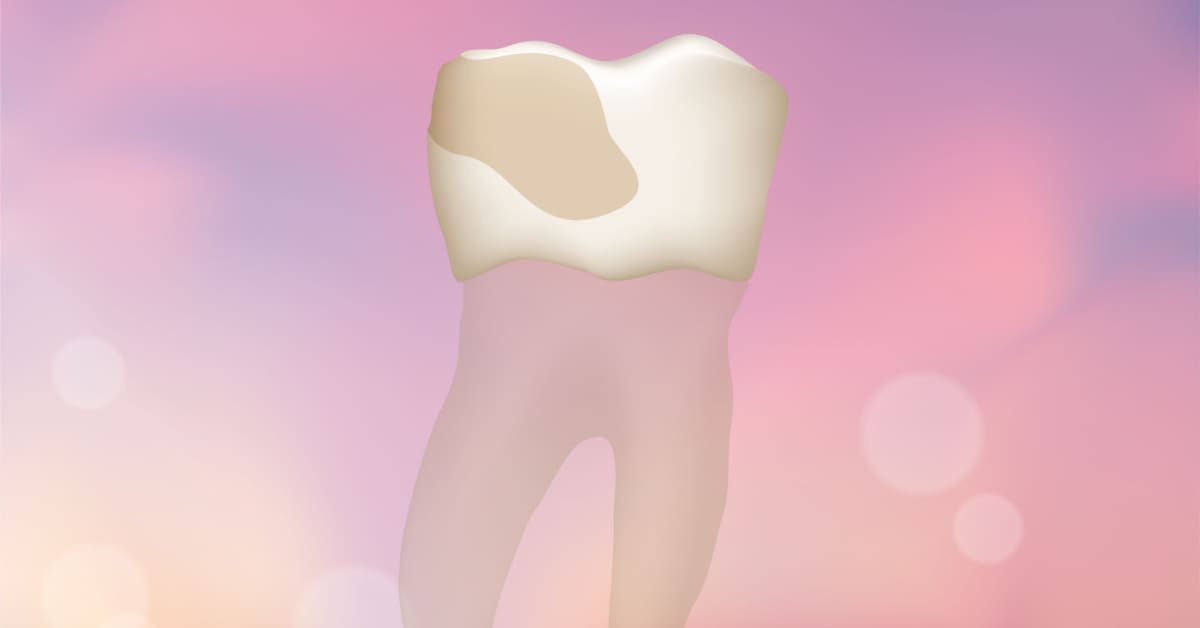Understanding Tooth Erosion: Signs, Severity, Treatment, and Prevention
Tooth erosion is a common dental issue that affects millions of people worldwide. It occurs when the protective enamel of the teeth gradually wears away due to various factors, leading to potential dental problems.
This guide will discuss the signs, seriousness, treatment options, and prevention strategies for tooth erosion, shedding light on the importance of regular dental check-ups. In West Orange, New Jersey, you can contact Dr. Paul Feldman at Suburban Essex Dental for expert guidance and care.
What Is Tooth Erosion?
Tooth erosion, dental erosion or enamel erosion refers to the progressive loss of tooth enamel, which is the teeth’s hard, protective outer layer. Enamel is crucial in safeguarding teeth from damage, such as decay and sensitivity. When enamel erodes, the underlying dentin becomes more exposed, making the teeth vulnerable to various dental issues.
Signs of Tooth Erosion
Detecting dental erosion in its early stages is vital for preventing more severe dental problems. Several signs can indicate the presence of tooth erosion.
- Tooth Sensitivity: Increased sensitivity to hot, cold, sweet, or acidic foods and beverages is a common early sign of tooth erosion. Exposed dentin can transmit temperature and sensation more easily than intact enamel.
- Discoloration: Teeth may appear discolored, taking on a yellowish or dull appearance as enamel thins and the darker dentin becomes more visible.
- Tooth Transparency: In some cases, teeth may become translucent at the edges, particularly near the gumline, due to enamel erosion.
- Rounded or Smooth Edges: The edges of teeth can become rounded or smooth instead of sharp and well-defined.
- Tooth Cracks and Chips: Weakened enamel is more prone to cracking and chipping, potentially leading to more extensive damage.
- Dental Pain: As erosion progresses, you may experience dental pain or discomfort, especially when consuming certain foods or beverages.
- Cupping: The biting surfaces of teeth may show signs of cupping, where small, shallow depressions develop due to erosion.
Seriousness of Tooth Erosion
Tooth erosion is a severe dental concern that can lead to various complications if left untreated.
- Increased Tooth Sensitivity: As enamel erodes, tooth sensitivity often intensifies, making everyday activities like eating and drinking uncomfortable.
- Cavities: Without the protective barrier of enamel, teeth are more susceptible to cavity formation, especially in deep grooves and crevices.
- Cracks and Fractures: Weakened enamel is more prone to cracking and fracturing, which can lead to more extensive dental work to repair.
- Tooth Loss: In severe cases, tooth erosion can lead to tooth loss, necessitating more complex and expensive restorative procedures like dental implants or bridges.
- Aesthetic Concerns: Discoloration and changes in tooth shape can significantly affect the appearance of your smile, leading to reduced self-confidence.
Treatment for Tooth Erosion
The treatment for tooth erosion depends on the severity of the condition. Preventive measures may be sufficient in mild cases, while more advanced cases may require restorative procedures. Here are some treatment options.
- Fluoride Application: Dentists can apply fluoride varnishes or gels to strengthen and protect the remaining enamel, reducing sensitivity and preventing further erosion.
- Dental Bonding: Dental bonding involves applying a tooth-colored resin to the affected tooth to restore its appearance and protect it from further damage.
- Dental Crowns: Dental crowns may be necessary for severely eroded teeth to provide added protection and restore functionality.
- Inlays and Onlays: These custom-made restorations can repair and strengthen teeth with moderate erosion.
- Orthodontic Treatment: In cases where tooth erosion is related to misalignment, orthodontic treatment may be recommended to correct the issue.
- Changes in Diet and Habits: Reducing consumption of acidic foods and beverages, avoiding excessive teeth grinding, and improving oral hygiene can help prevent further erosion.
Does Tooth Erosion Go Away?
Tooth erosion itself does not go away on its own. However, proper dental care and preventive measures can be managed, and further progression can be halted. The goal of treatment is to preserve the remaining enamel and prevent complications like cavities and tooth sensitivity. Regular dental check-ups are essential for monitoring the condition and making necessary adjustments to the treatment plan.
Preventing Tooth Erosion
Preventing tooth erosion is crucial for maintaining optimal oral health. Here are some strategies to help prevent erosion.
- Limit Acidic Foods and Drinks: Reduce consumption of acidic foods and beverages such as citrus fruits, sodas, and sports drinks, which can contribute to enamel erosion.
- Use a Straw: When drinking acidic beverages, use a straw to minimize contact with your teeth.
- Rinse with Water: After consuming acidic foods or drinks, rinse your mouth with water to help neutralize acids.
- Chew Sugar-Free Gum: Chewing sugar-free gum stimulates saliva production, which can help neutralize acids and strengthen enamel.
- Maintain Good Oral Hygiene: Brush your teeth gently with fluoride and a soft-bristle toothbrush. Floss daily to remove plaque and food particles.
- Regular Dental Check-ups: Visit your dentist for regular check-ups and cleanings. Your dentist can detect tooth erosion early and guide you on preventing further damage.
Do You Suspect You Are Experiencing Tooth Erosion?
Tooth erosion is a common dental issue with severe consequences if left untreated. Recognizing the signs, understanding their severity, seeking appropriate treatment, and following preventive measures are essential for maintaining healthy teeth and a beautiful smile.
If you’re in West Orange, New Jersey, or can travel to this beautiful town, don’t hesitate to contact Dr. Paul Feldman at Suburban Essex Dental for expert dental care and guidance on managing tooth erosion. Regular dental visits are crucial to preserving your oral health and preventing the progression of tooth erosion.
Contact Suburban Essex Dental in West Orange, NJ, today to schedule your next dental consultation.







